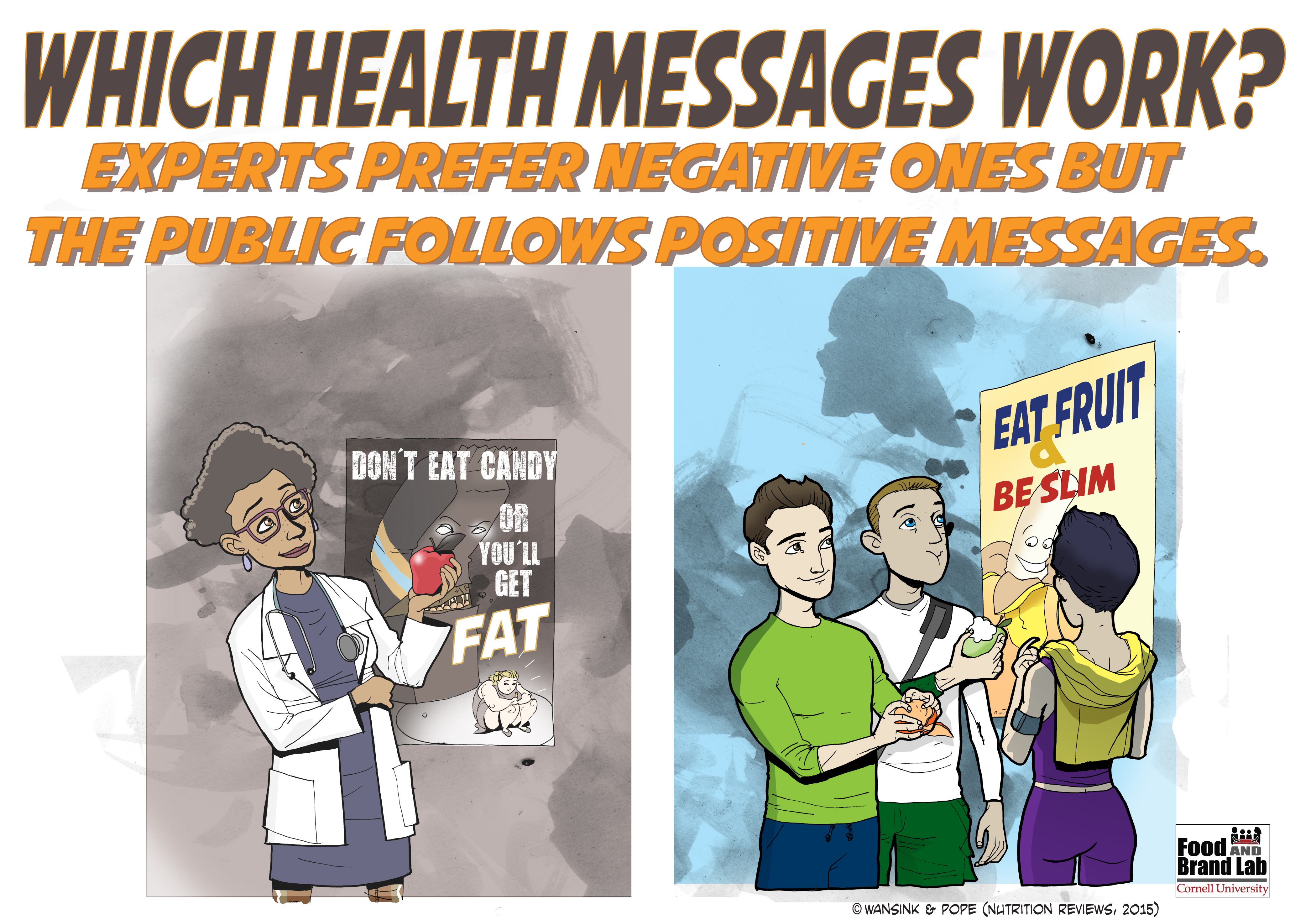A recent study has found that health messages–the kind that are posted on billboards to advise the public or decorate the walls of doctors’ offices–have different effects on two different classes of people. The research found that while experts respond better to negative, loss-framed messages that make sense within the context their strong knowledge of the subject, most people do not. The general public responds better to positive, gain-framed messages that make sense within a big picture-type understanding of health.
It is the difference between “preaching to the choir” and reaching “people who really need to hear it, but who really don’t care that much to think very deeply about it,” Dr. Brian Wansink, director of the Cornell Food and Brand Lab and lead author of the study, said of his findings.
Wansick explained this by referencing the different understandings of health possessed by experts and the general public.
Experts–dieters, dieticians, and people who work in medicine or the medical area–have a strong knowledge-base with which they can process a health message. These people are highly involved in the topic, Wansick explained, and they “piecmeal process” health information (process things in detail. They also feel a duty to maintain the achievements they have already made in health matters, and tend to be risk-averse.
The general public, Wansick said, have less firsthand knowledge of the consequences of their actions, and view healthy behaviors are a choice rather than a duty. They tend to focus on what is gained by a certain behavior rather than what is lost.
Because experts write health messages, the study should give them something new to consider, the researchers expect. Because message designers can now be aware that what makes sense to themselves and their peers will likely have a different effect on the general public, they may be able to correct for their negative-message bias and create more useful positive messages.
The report, “Negative Messages for Experts, Positive Messages for Novices,” was completed by Brian Wansick and Lizzy Pope, and was published by Cornell Food & Brand Lab in Nutrition Reviews.
By Cheryl Bretton
Photo: the work of the researchers
